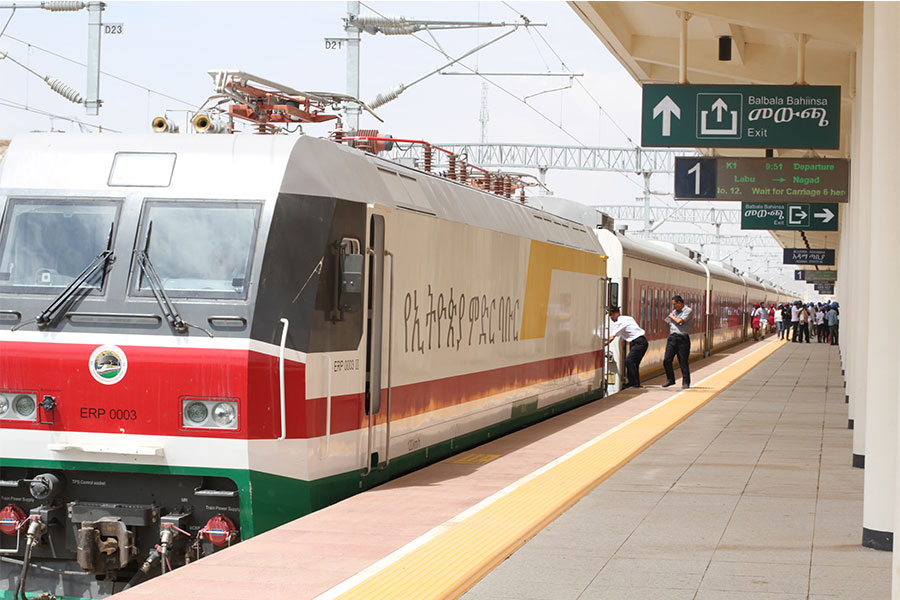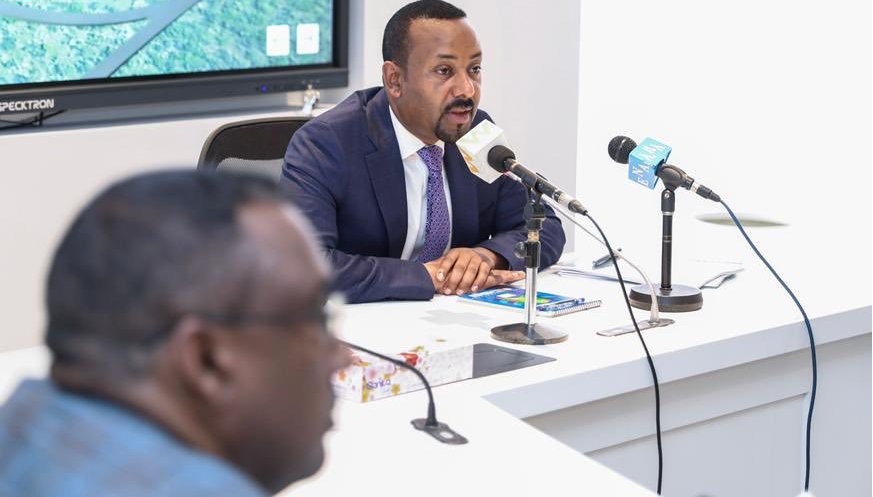
Radar | Jan 15,2022
A new committee composed of members from the Ethiopian and Djiboutian transport authorities has been formed to facilitate freight and shipping logistics between the two countries. The Committee was initiated by the Maritime Affairs Authority and endorsed by the National Logistics Council, a high-level team formed to put forward policy interventions to solve the bottlenecks in the logistics industry.
Overcoming challenges to the logistics sector, conducting research in the field, and addressing industrial bottlenecks are some of the main tasks shouldered by the Committee. Since its establishment in November, the Committee has had a series of virtual meetings and plans to organise a workshop in Addis Abeba by the end of January.
Founded following a workshop held this October, the Committee is comprised of members from the Customs Commission, the Federal Transport Authority, the Ministry of Trade & Industry, and the National Bank of Ethiopia among others. Djibouti port, customs and roads agencies are taking part on behalf of the neighbouring country, while the Ethiopian Freight Forwarders & Shipping Agents Association represents the private sector in Ethiopia.
The Committee will conclude its discussions on two major points: a shared standard working procedure and the alignment of working hours between the two countries.
This is a platform to develop these working procedures to bring systematic change, according to Elizabeth Getahun, president of the Association.
A study conducted by the Ethiopian Logistics Community of Practice, another member of the technical committee, found that the mismatch of working hours between the two countries is cause for high economic losses. Ethiopia has 40 working hours a week, while Djibouti has 48.
"We plan to submit the proposal for established common working hours between the two countries at the workshop," Elizabeth said. "This is one of the major reasons for congestion at the Port."
The Association also signed a memorandum of understanding (MoU) with the Customs Commission at its annual general assembly event held at the Hyatt Regency earlier this month as part of the "ease of doing business" reforms in the country. In line with this, the Commission has launched an automated system that enables companies to process and secure permits and pay duties and tariffs online.
During its general assembly, the Association also presented its annual report and its first five-year plan since its establishment in 1998. Notable throughout the past year was its consultative participation in the 10-Year National Logistic and Transport strategic plans and the directive on the categorisation of freight trucks in the country approved in November.
It is also into its fourth month of training under the newly launched Young Logisticians Programme, whereby trainees get an FIATA diploma from the International Federation of Freight Forwarders Associations (FIATA) based in Zurich, Switzerland.
Experts in the field believe that the success of this committee will increase the efficiency of the logistics sector.
It will lessen bureaucratic hurdles and improve the performance rating of the country internationally, according to Matiwos Ensermu (PhD), president of the Logistics & Supply Chain Professionals Association.
Ethiopia ranks 126 out of 160 countries on the logistics performance index released annually by the World Bank. The recently approved National Logistics Strategy aims to push Ethiopia's rank to as high as 40 by 2028.
"Having standardised documents that work for both countries is expected to be validated through the workshop," Matiwos said. "This means a set of documents will be needed for clearance, payment and other processes, which will increase productivity."
Ethiopia receives more than 95pc of all import materials through the Port of Djibouti. Recently, Prime Minister Abiy Ahmed (PhD) headed to Kenya to inspect the construction of the Lamu Port, part of the Lamu Port-South Sudan-Ethiopia-Transport Corridor, a large-scale infrastructure project dedicated to interconnecting Kenya, Ethiopia and South Sudan.
PUBLISHED ON
Dec 19,2020 [ VOL
21 , NO
1077]

Radar | Jan 15,2022

Fortune News | May 11,2024

Radar |

Fortune News | May 18,2019

Radar | Sep 02,2023

Radar | Jul 17,2022

Fortune News | Aug 10,2019

Radar | Jul 27,2019

Fortune News | Jul 18,2020

Radar | Oct 23,2023

Dec 22 , 2024 . By TIZITA SHEWAFERAW
Charged with transforming colossal state-owned enterprises into modern and competitiv...

Aug 18 , 2024 . By AKSAH ITALO
Although predictable Yonas Zerihun's job in the ride-hailing service is not immune to...

Jul 28 , 2024 . By TIZITA SHEWAFERAW
Unhabitual, perhaps too many, Samuel Gebreyohannes, 38, used to occasionally enjoy a couple of beers at breakfast. However, he recently swit...

Jul 13 , 2024 . By AKSAH ITALO
Investors who rely on tractors, trucks, and field vehicles for commuting, transporting commodities, and f...

Oct 11 , 2025
Ladislas Farago, a roving Associated Press (AP) correspondent, arrived in Ethiopia in...

Oct 4 , 2025
Eyob Tekalegn (PhD) had been in the Governor's chair for only weeks when, on Septembe...

Sep 27 , 2025
Four years into an experiment with “shock therapy” in education, the national moo...

Sep 20 , 2025
Getachew Reda's return to the national stage was always going to stir attention. Once...